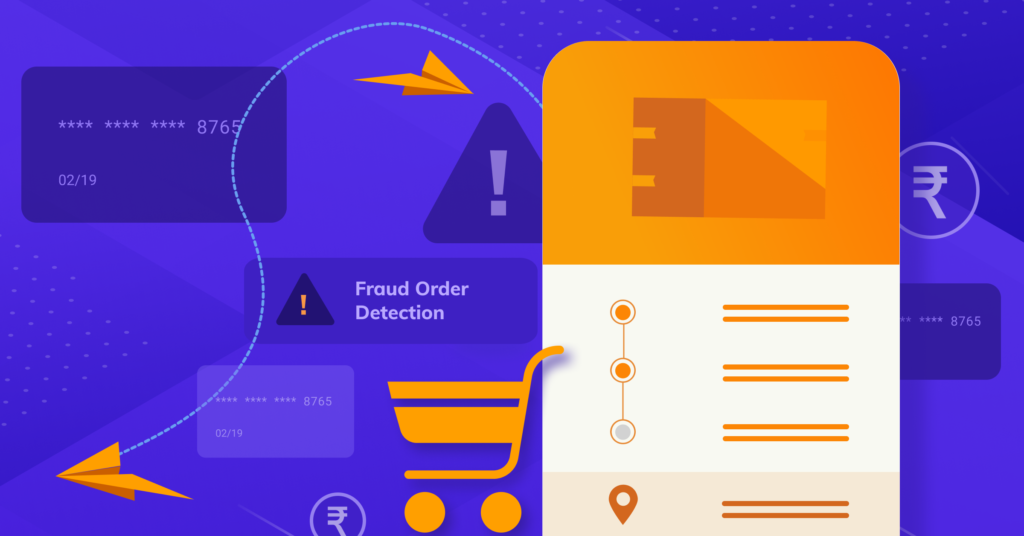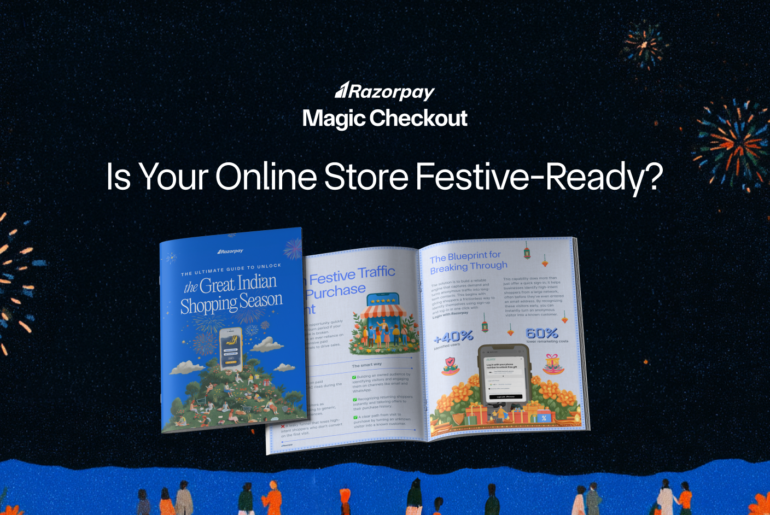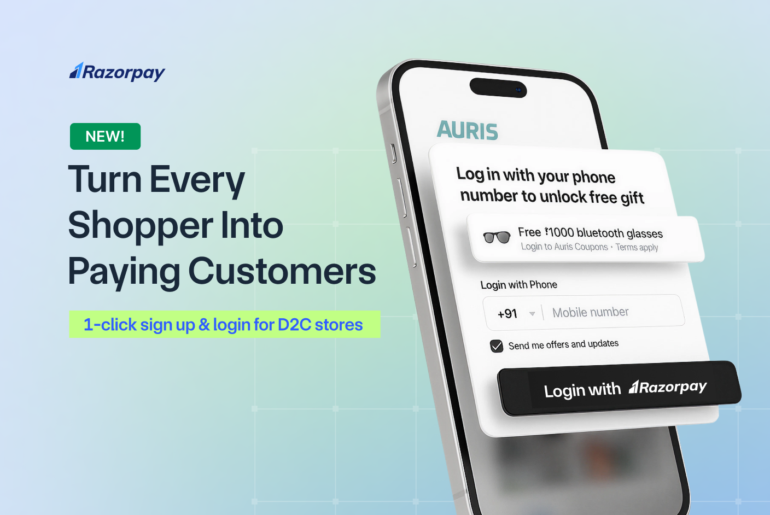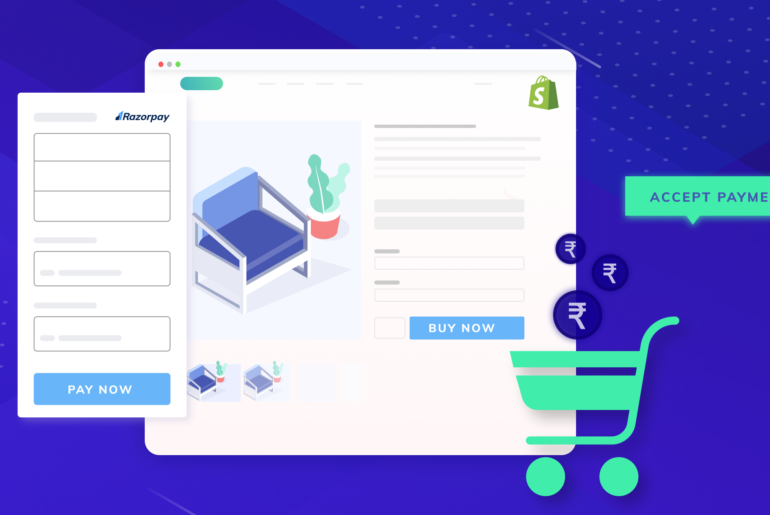The COVID-19 situation has brought in waves of change that have altered societal and consumer behaviour drastically. One of the industries that are currently going through a complete change in approach is the e-commerce vertical.
From shipping to tracking, e-commerce and hyperlocal business owners are now forced to re-evaluate their business models in order to adapt to the changing world order. Last-mile delivery, complete digitization, end-to-end sanitization, contactless delivery, etc. are a few methods that have been currently innovated in order to stay afloat.
On May 8th 2020, Razorpay Thirdwatch hosted a webinar with Shipway on “Ensuring the best post-shipping experience during the lockdown”, featuring Gaurav Gupta, co-founder of Shipway and Abhijeet Gaur, Product Lead at Thirdwatch.
During this session, we discussed a few important strategies that e-commerce businesses need to follow, in terms of ensuring a good shipping experience and keeping fraud at bay. In this article, we will be covering key takeaways from the session, just in case you missed attending it. Let’s begin!
Times are a-changin- A look at the trends in e-commerce
Most e-commerce companies have resumed operations, at least in part and we’re seeing a steady growth in shopping patterns. Changing customer preferences and shopping habits have given us many learnings. Here are a few trends that we have observed after the intervention of COVID-19:
- According to McKinsey, e-commerce businesses will grow at least 3 to 6 times in the months to come
- About 54% of consumers are expected to cut spends in malls while boosting spends on channels like e-commerce
- During the first seven days of Lockdown 3.0, the fashion retail sector has recovered 30% of its pre-lockdown order volumes
- Order volume for electronic appliances increased significantly, with a recovery rate of 35% in the first week of the Lockdown 3.0
- There has been a 5-7% rise in the average order size compared to the week before the lockdown was announced in March.
- Amazon has grown its overall sales amid the pandemic, with revenues rising 26% to $75.5 billion
- E-pharma and online grocery sector witnessed a massive spike of 100% during the first two stages of lockdown, with the average order size increased by 20%
- Snapdeal reached 50% of pre-lockdown volumes within 5 days of expanded operations. Compared year-on-year, the order volumes for the first 9 days of May 2020 was 52% of volumes in the same period last year
- Paytm Mall Senior VP Srinivas Mothey said the company has seen the demand for non-essential items pick up in all orange and green zones.
Changing customer expectations
Just like we stated before, the whole lockdown situation all over the world has brought in waves of change in customer behaviour online. We are observing new habits online due to shifting priorities. Here are a few key pointers on customer expectations.
Direct purchase from brands
Over the last two weeks, we have also spoken to many sellers who have seen an increase in customers purchasing products directly from brands. This can be attributed to the following reasons:
- Customers are beginning to value authenticity over everything else. This also plays an important factor in trust.
- Access to the latest collections, higher varieties and a consolidated platform is encouraging customers to directly purchase at brand outlets/official websites.
- Deep discounting provided by big brands such as Allen Solly and Louis Philippe at their franchisee outlets is also driving more customers to brands directly.
What are customers expecting?
Shipway is a popular e-commerce solution that specializes in post-purchase experience. They help e-commerce businesses by automating order tracking and NDR management. Shipway has collaborated with many e-commerce firms all over the country to list customer expectations that we can expect in the post-lockdown period. We can expect all of these factors to directly have an impact on customer satisfaction, too. Let’s have a look.
- Consumers expect quick, hassle-free order fulfilment from businesses. This can be done by collaborating with shipping companies that are well connected across Tier 1,2 and 3 cities.
- With hygiene and sanitization as a top priority, customers are now expecting timely updates at every step along the way. A seamless tracking mechanism can go a long way in ensuring customer happiness.
- Customers are also looking for an expected date of delivery during these uncertain times.
- The best way to a customer’s heart is through great return policies. After all, returns make a huge impact on both the customer and the seller.
- A flawless system in place for returns, pickups, refunds, exchanges and cancellations will also make a huge difference to customer perception and will keep customers returning for more.
What can brands do?
Here are a few tips that e-commerce brands can do to keep up with the rising levels of customer expectations:
- Set the right expectations around delivery and return policies upfront. 60% are more likely to purchase from a retailer who tells them the exact date a package will arrive. 2 out of 3 customers check the return policy before making a purchase.
- Send the right communication, at the right time, through the right channel. Choose wisely between channels like SMS, emails, WhatsApp notifications and IVR calls. A few examples of communication are shipment booked, in transit, delayed delivery due to COVID-19, etc.
- Keep customers in a branded tracking experience. Enable a personalized tracking page for your brand for providing timely updates.
- Communication for returns is very important and can make or break your relationship with the customer. Make sure to draft a suitable return communication plan according to different use-cases.
- Keep track of your Net Promoter Score (NPS). NPS is a management tool that can be used to gauge the loyalty of a firm’s customer relationships. It serves as an alternative to traditional customer satisfaction research and is correlated with revenue growth. Find out your NPS here.
Importance of tracking and transparency
A large part of shipping operations in e-commerce works on a strong foundation of trust between the customer and the seller. A major enabler of trust is transparency and tracking throughout the entire process.
Companies like Shipway help e-commerce companies in providing a branded tracking experience to their customers. From a marketing perspective, too, this can be extremely beneficial for brand recall. Here are a few reasons why you should implement branded tracking for your company:
- On average, a buyer tracks their package 7-8 times before delivery
- Keep your customers coming back for more by cross-selling options and showing recommended products on tracking pages
- Reduce customer queries and improve the feedback loop
- Bring down your RTO rates and returns with the help of branded tracking pages
Why is Net Promoter Score crucial?
The Net Promoter Score (NPS) is a relationship survey that helps you understand whether your customers would recommend you to others. You can trigger auto email alerts when an NPS drops below a certain level. You can also use the NPS as a standard to optimize your customer engagement plans.
Businesses use NPS to capture feedback and assess overall customer satisfaction. With its numeric scoring, management can easily calculate their average and see how content their customers are. Additionally, the system’s standardized scoring clarifies positive and negative reviews, and the comment section available with questions provides further details justifying the respondent’s score.
Ensuring a good post-shipping experience
In conclusion, we know that e-commerce companies must follow a basic set of hygiene methods to make sure that there are no loose ends in securing a good post-shipping experience. Here are some final takeaways for you:
- A proactive, rather than a reactive approach, is essential for an effective post-shipping experience. Reach your customers before they reach you, that’s the key.
- Experiment and adapt fast to new technologies and solutions as per changing trends.
- Ensure that you provide a great post-shipping experience with methods such as status updates, branded tracking pages, reverse shipment tracking, etc.
- Make sure to automate processes outside core business operations in order to save time and resources and focus on business.
We at Razorpay Thirdwatch, too, are helping businesses fight RTO and returns during a time like this by providing a wholesome e-commerce fraud solution. If you have any questions about how we can help your business, make sure to get in touch with us at thirdwatch@razorpay.com. Check out how we’re revolutionizing order confirmations and detecting suspicious orders here!



